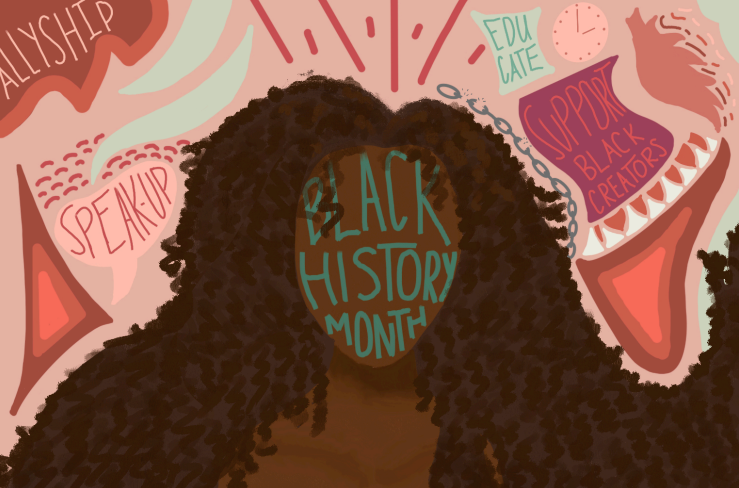How to celebrate Black History Month as a non-Black person
Avoiding “slacktivism” and performative activism to effectively celebrate Black History Month 2021
Celebrate Black History Month by learning, accepting, and amplifying. The Black History Month 2021 Theme is “The Black Family: Representation, Identity, and Diversity.”
February 16, 2021
Since 1976, February has been set aside to celebrate Black achievements. If you are a non-Black person, this is a perfect time to educate yourself on Black history. Black History Month 2021 should look different for you, especially with the rise of Black Lives Matter protests from last summer. The theme for 2021 is “ The Black Family: Representation, Identity, and Diversity.”
Black History Month is more than a post on social media. Throughout this month, and after, your goal is simple- to learn, accept, and amplify. Here are some ideas to get you started:
The first and most accessible step is to learn and educate yourself! Start with books or plays, or maybe try a movie or a podcast. Research a variety of topics like Black history, important figures, and explore both fiction and nonfiction books and movies. Some days, it’s important to find films or books that are not structured around racial violence, and just focus on Black culture. The focus of this month is to understand and learn, and well rounded resources are essential to make that step.
My favorite books include “The Hate U Give” by Angie Thomas and “The Color Purple” by Alice Walker. I also recommend movies such as “Selma”, “Fences”, and “Hidden Figures.” A great podcast is “NPR’s Code Switch: Race in Your Face.” For more recommendations, P-b resources, a website run by NYU student Alexis Williams, has a diverse list.
Another way to integrate education into February is to make it a daily routine. Set aside 5-10 minutes a day to read a new article or listen to a podcast. P-b resources also updates with a new figure and event of the day.
It is also important to accept and check your subconscious biases. This step is often overlooked because we have been so trained to see race a certain way. After you acknowledge that you have a bias, I encourage you to check them with the Harvard Implicit Association Test. After you’ve taken it, share it with others and talk about your biases. How does it affect your everyday life? What changes will you make going forward?
Remember that it is not a Black person’s job to educate you. You must take the time to learn on your own, especially with thousands of resources available.
The main purpose of this month is to amplify Black voices. Be careful with this step because it is important not to talk over or speak for Black people.
Follow Black voices on social media. Since June, my Instagram feed has looked so much more diverse because I didn’t even realize how uniform my social media were. Some creators I recommend are @rachelcargle, @osopepatrisse, and @alexisdenisew.
Share these creators and their posts! Although sharing on social media may seem performative, it is a great way to share information. Before you post, think “What information have I learned that I want to share with my followers?”
It is so crucial to take these weeks dedicated to learning, accepting, and amplifying, because we have a lot of learning to do. What’s more important is to take what you learn during this month and incorporate it into your life past February- What will you do to support Black lives moving forward?








